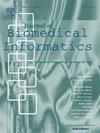自然语言处理在处理医学不准确信息中的范围综述:错误、错误信息和幻觉
IF 4.5
2区 医学
Q2 COMPUTER SCIENCE, INTERDISCIPLINARY APPLICATIONS
引用次数: 0
摘要
目的:本综述旨在探讨利用自然语言处理(NLP)检测、纠正和减轻医学不准确信息(包括错误、错误信息和幻觉)的潜力和挑战。通过统一这些概念,本综述强调了它们共享的方法基础及其对医疗保健的独特影响。我们的目标是提高患者安全,改善公共卫生沟通,并支持在医疗保健领域开发更可靠和透明的NLP应用程序。方法:根据PRISMA-ScR指南进行范围审查,分析5个数据库从2020年到2024年的研究。研究是根据其使用NLP来处理医学上不准确的信息而选择的,并按主题、任务、文档类型、数据集、模型和评估指标进行分类。结果:NLP在以下任务中显示了处理医学上不准确信息的潜力:(1)错误检测(2)错误纠正(3)错误信息检测(4)错误信息纠正(5)幻觉检测(6)幻觉缓解。然而,数据隐私、上下文依赖性和评估标准方面的挑战仍然存在。结论:本综述强调了应用NLP解决医学不准确信息的进展,同时强调了解决持续挑战的必要性。未来的工作应该集中在开发真实世界的数据集,改进上下文方法,改进幻觉管理,以确保可靠和透明的医疗保健应用程序。本文章由计算机程序翻译,如有差异,请以英文原文为准。

A scoping review of natural language processing in addressing medically inaccurate information: Errors, misinformation, and hallucination
Objective:
This review aims to explore the potential and challenges of using Natural Language Processing (NLP) to detect, correct, and mitigate medically inaccurate information, including errors, misinformation, and hallucination. By unifying these concepts, the review emphasizes their shared methodological foundations and their distinct implications for healthcare. Our goal is to advance patient safety, improve public health communication, and support the development of more reliable and transparent NLP applications in healthcare.
Methods:
A scoping review was conducted following PRISMA-ScR guidelines, analyzing studies from 2020 to 2024 across five databases. Studies were selected based on their use of NLP to address medically inaccurate information and were categorized by topic, tasks, document types, datasets, models, and evaluation metrics.
Results:
NLP has shown potential in addressing medically inaccurate information on the following tasks: (1) error detection (2) error correction (3) misinformation detection (4) misinformation correction (5) hallucination detection (6) hallucination mitigation. However, challenges remain with data privacy, context dependency, and evaluation standards.
Conclusion:
This review highlights the advancements in applying NLP to tackle medically inaccurate information while underscoring the need to address persistent challenges. Future efforts should focus on developing real-world datasets, refining contextual methods, and improving hallucination management to ensure reliable and transparent healthcare applications.
求助全文
通过发布文献求助,成功后即可免费获取论文全文。
去求助
来源期刊

Journal of Biomedical Informatics
医学-计算机:跨学科应用
CiteScore
8.90
自引率
6.70%
发文量
243
审稿时长
32 days
期刊介绍:
The Journal of Biomedical Informatics reflects a commitment to high-quality original research papers, reviews, and commentaries in the area of biomedical informatics methodology. Although we publish articles motivated by applications in the biomedical sciences (for example, clinical medicine, health care, population health, and translational bioinformatics), the journal emphasizes reports of new methodologies and techniques that have general applicability and that form the basis for the evolving science of biomedical informatics. Articles on medical devices; evaluations of implemented systems (including clinical trials of information technologies); or papers that provide insight into a biological process, a specific disease, or treatment options would generally be more suitable for publication in other venues. Papers on applications of signal processing and image analysis are often more suitable for biomedical engineering journals or other informatics journals, although we do publish papers that emphasize the information management and knowledge representation/modeling issues that arise in the storage and use of biological signals and images. System descriptions are welcome if they illustrate and substantiate the underlying methodology that is the principal focus of the report and an effort is made to address the generalizability and/or range of application of that methodology. Note also that, given the international nature of JBI, papers that deal with specific languages other than English, or with country-specific health systems or approaches, are acceptable for JBI only if they offer generalizable lessons that are relevant to the broad JBI readership, regardless of their country, language, culture, or health system.
 求助内容:
求助内容: 应助结果提醒方式:
应助结果提醒方式:


